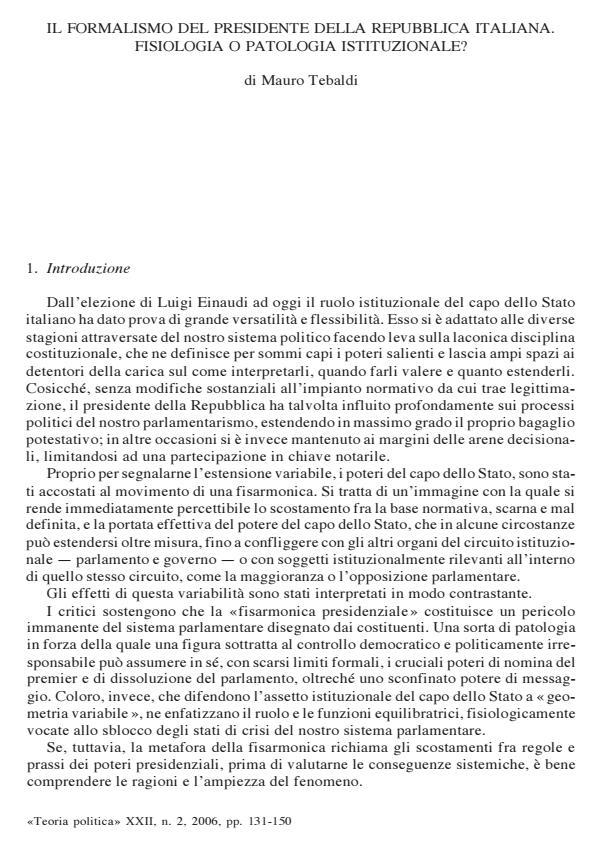Il formalismo del Presidente della Repubblica italiana. Fisiologia o patologia istituzionale?
Titolo Rivista TEORIA POLITICA
Autori/Curatori Mauro Tebaldi
Anno di pubblicazione 2006 Fascicolo 2006/2
Lingua Italiano Numero pagine 20 P. Dimensione file 121 KB
DOI
Il DOI è il codice a barre della proprietà intellettuale: per saperne di più
clicca qui
Qui sotto puoi vedere in anteprima la prima pagina di questo articolo.
Se questo articolo ti interessa, lo puoi acquistare (e scaricare in formato pdf) seguendo le facili indicazioni per acquistare il download credit. Acquista Download Credits per scaricare questo Articolo in formato PDF

FrancoAngeli è membro della Publishers International Linking Association, Inc (PILA), associazione indipendente e non profit per facilitare (attraverso i servizi tecnologici implementati da CrossRef.org) l’accesso degli studiosi ai contenuti digitali nelle pubblicazioni professionali e scientifiche.
Among the top institutions of our parliamentary system, the Presidency of the Republic is the one which shows most frequently the higher level of institutional formalism, that is a significant gap between its normative basis, thin an ill-defined, and the magnitude of its powes, sometimes so huge that they foster harsh institutional fights. Originally, such formalism was due to the power differentials among the constitutional coalition members, besides the burocratic-organizational resources given to the institution. Systemic factors relating to the competition among parties set the constraints to action and opportunities too, in the medium term, while short term variations in the President power depend on factors such as infra-coalitional tensions. This analysis shows that the judgment on a range of presidential decisions cannot be made only on the basis of law rules. Formal practices are crucial parts of istitutionalization processes, but they have to be discussed on a case by case basis in relation to the various conditions, long and short term, of the political system.
Mauro Tebaldi, Il formalismo del Presidente della Repubblica italiana. Fisiologia o patologia istituzionale? in "TEORIA POLITICA" 2/2006, pp , DOI: